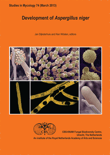
STUDIES IN MYCOLOGY
Scope & Guideline
Connecting Scholars to the World of Mycology
Introduction
Aims and Scopes
- Taxonomy and Systematics of Fungi:
The journal emphasizes the classification, reclassification, and systematic organization of various fungal taxa, including both well-known and obscure groups. This includes detailed studies on genera and species, providing updated classifications based on phylogenetic analyses. - Phylogenetic and Molecular Research:
A core focus of the journal is the application of molecular techniques to resolve phylogenetic relationships among fungi. This includes multi-locus phylogenetic studies and genomic analyses that contribute to a deeper understanding of fungal evolution. - Ecological and Biogeographical Studies:
Research published in this journal often explores the ecological roles of fungi within various environments, including their interactions with plants and other organisms, as well as their distribution patterns across different geographical regions. - Novel Species and Genera Descriptions:
The journal frequently publishes articles that describe new species and genera of fungi, highlighting the ongoing discovery of fungal diversity in under-studied regions, thus contributing to the overall knowledge of mycological biodiversity. - Fungal Pathogens and Biotechnological Applications:
There is a significant focus on the study of fungal pathogens, particularly those affecting plants and humans, as well as the potential biotechnological applications of fungi in various industries, including agriculture and medicine.
Trending and Emerging
- Genomic and Phylogenomic Approaches:
There is a noticeable increase in studies employing genomic and phylogenomic techniques to explore fungal diversity and evolutionary relationships. This trend reflects the broader movement in biological sciences towards high-throughput sequencing and comprehensive genetic analysis. - Focus on Fungal Biodiversity in Under-Studied Regions:
Recent publications highlight a growing interest in documenting fungal diversity in regions that have been historically overlooked, such as parts of Asia. This reflects a commitment to uncovering the full scope of fungal biodiversity globally. - Integration of Molecular and Ecological Data:
Emerging themes show a trend towards integrating molecular data with ecological studies, providing a more holistic view of fungal roles in ecosystems and their interactions with other organisms, which enhances our understanding of their ecological significance. - Taxonomic Revisions Based on Advanced Techniques:
The journal has increasingly published articles on taxonomic revisions that utilize advanced molecular techniques, indicating a shift towards more dynamic and accurate classifications that challenge traditional taxonomic frameworks. - Pathogenicity and Host Interaction Studies:
There is a growing focus on understanding the pathogenicity of fungi and their interactions with hosts, particularly in the context of emerging fungal diseases and their implications for agriculture and health.
Declining or Waning
- Classical Morphological Studies:
There seems to be a waning emphasis on purely morphological studies of fungi, as the field increasingly adopts molecular tools for taxonomy and identification, which provide more robust and reproducible results. - General Reviews of Well-Established Groups:
The frequency of comprehensive reviews on well-established fungal groups, such as common genera like Aspergillus or Penicillium, appears to be decreasing. This may indicate a shift towards more focused studies that contribute new insights rather than reiterating existing knowledge. - Traditional Methods in Fungal Ecology:
Research utilizing traditional ecological methods, such as simple observational studies without molecular tools, is becoming less common, as there is a growing preference for integrative approaches that combine ecological data with genetic information.
Similar Journals

NEW ZEALAND JOURNAL OF BOTANY
Fostering Innovation in Plant Science ResearchThe New Zealand Journal of Botany, published by the esteemed Taylor & Francis Ltd, serves as a pivotal platform for disseminating significant research in the fields of Ecology, Evolution, Behavior and Systematics, as well as Plant Science. With a rich history dating back to 1963 and an impressive convergence extending to 2024, this journal has established itself as an essential resource for researchers and professionals dedicated to understanding the complexities of plant life and ecological systems in New Zealand and beyond. The journal is currently categorized in the Q3 quartile for both relevant disciplines as of 2023, reflecting its balanced influence within the global academic community. Although not an open access journal, it retains a significant impact factor, evidenced by its Scopus rankings, which place it within the top half of its categories. This makes it an invaluable tool for students, researchers, and academics aiming to engage with robust, peer-reviewed scientific findings and contribute to the evolving discourse surrounding botany and ecological research.
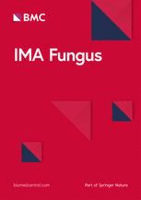
IMA Fungus
Exploring the Intricacies of Fungi and Ecosystems.IMA Fungus is an esteemed open-access journal published by BMC, dedicated to advancing research in the fields of fungi, plant sciences, and ecological systems. With an ISSN of 2210-6340 and E-ISSN 2210-6359, this journal has been an influential platform since its inception in 2010, contributing significantly to the scientific community in the United States and beyond. The journal’s remarkable impact can be seen in its Q1 quartile rankings across multiple categories, including Agricultural and Biological Sciences, Ecology, Evolution, Behavior and Systematics, and Plant Science, positioning it among the top literary sources in these fields. Notably, IMA Fungus holds impressive Scopus rankings, with the Agricultural and Biological Sciences category placing it in the 98th percentile, evidencing its crucial role in disseminating impactful research. Given its commitment to fostering accessibility and collaboration, IMA Fungus continues to be an invaluable resource for researchers, professionals, and students aiming to explore and understand the complex roles of fungi within various ecosystems.
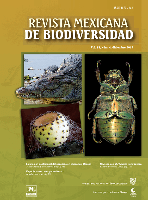
Revista Mexicana de Biodiversidad
Fostering Global Dialogue on Biodiversity and ConservationRevista Mexicana de Biodiversidad is a prominent academic journal dedicated to the field of biodiversity and conservation, published by the prestigious Instituto de Biología, Universidad Nacional Autónoma de México. Since its inception as an Open Access publication in 2005, it has aimed to disseminate high-quality research that advances the understanding of biological diversity in Mexico and beyond. With an ISSN of 1870-3453 and an E-ISSN of 2007-8706, the journal caters to a diverse audience, including researchers, professionals, and students, by providing vital insights into ecological studies, conservation strategies, and the sustainable management of natural resources. The journal is committed to fostering scientific collaboration and promoting the significance of biodiversity in addressing contemporary environmental challenges. By publishing innovative and impactful research, the Revista Mexicana de Biodiversidad plays an essential role in the global discourse on biodiversity conservation.

SYDOWIA
Bridging Knowledge Gaps in Plant Science and SystematicsSYDOWIA is a prestigious academic journal based in Austria, published by Verlag Ferdinand Berger Sohne Gesellschaft mbH, that has been a cornerstone of scientific publishing since its establishment in 1996. With an ISSN of 0082-0598, SYDOWIA focuses on critical research in the fields of Ecology, Evolution, Behavior and Systematics as well as Plant Science, earning a notable classification in Category Quartiles with Q3 in Ecology-related disciplines and Q2 in Plant Science for 2023. The journal’s strategic insights into agricultural and biological sciences have secured a place within the Scopus rankings, where it holds the position of #191 out of 516 in Plant Science and #278 out of 721 in Ecology categories—reflecting its growing influence with a percentile standing of 63rd and 61st, respectively. Although SYDOWIA is not an Open Access journal, it continues to thrive in delivering scholarly articles that promote advancement and innovation in ecological and botanical research. Researchers, professionals, and students alike can rely on SYDOWIA as a vital resource for disseminating knowledge and fostering exploration in these essential scientific domains.

Mycosphere
Exploring the intricate connections of fungi and ecosystems.Mycosphere is a premier open-access journal published by MYCOSPHERE PRESS, dedicated to advancing the field of mycology and contributing significant insights into ecological and plant sciences. Established in 2010 and headquartered in Guiyang, China, this journal has carved out a vital niche, achieving remarkable rankings in the Scopus database—#3 in Ecology, Evolution, Behavior and Systematics and #4 in Plant Science, both boasting a 99th percentile ranking. With an unwavering commitment to disseminating high-quality research, Mycosphere serves as a critical platform for researchers, professionals, and students alike, encouraging robust dialogue and collaborations across the global scientific community. The journal's accessibility, coupled with its impact factor and Q1 categorizations in 2023 for both ecology and plant sciences, substantiate its role as an essential resource for cutting-edge studies and innovations in the field.
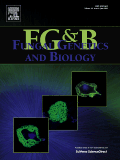
FUNGAL GENETICS AND BIOLOGY
Connecting Genetics and Biology for Fungal BreakthroughsFungal Genetics and Biology is a leading peer-reviewed journal published by Academic Press Inc, Elsevier Science, dedicated to advancing the understanding of fungi through innovative genetic and biological research. Since its inception in 1996, this journal has served as a vital platform for the dissemination of critical findings in the fields of Genetics and Microbiology, maintaining a distinguished Q2 category ranking in both disciplines as of 2023. With an ISSN of 1087-1845 and an E-ISSN of 1096-0937, the journal emphasizes the intersection of genetics and molecular biology to explore fundamental questions related to fungal biology that are of paramount importance to various applications in biotechnology, medicine, and environmental science. Researchers, professionals, and students alike will find this journal invaluable as it not only covers current trends and breakthroughs but also encourages collaborative efforts across the scientific community. Fungal Genetics and Biology continues to shape the future of fungal research well into 2024 and beyond, offering rich insights and open access options for a global audience.
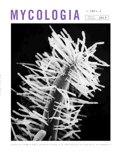
MYCOLOGIA
Exploring the intricate world of fungi and their ecosystems.MYCOLOGIA, published by Taylor & Francis Inc, is a prestigious journal that has been at the forefront of fungal research since its inception, with converging years of publication from 1945 to 2024. This interdisciplinary journal, identified by ISSN 0027-5514 and E-ISSN 1557-2536, stands out in various scientific categories, achieving Q1 rankings in Ecology, Evolution, Behavior and Systematics, as well as Plant Science, alongside strong performances in Cell Biology and Molecular Biology categories. With an impact factor that reflects its significance in the field, MYCOLOGIA appeals to a diverse audience, including researchers, professionals, and students dedicated to advancing the understanding of fungal biology and its ecological implications. Notably, while it does not currently operate under an Open Access model, the journal remains a vital resource for those pursuing groundbreaking discoveries in mycology and related disciplines.
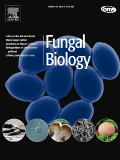
Fungal Biology
Connecting Science and Nature: The Fungal FrontierFungal Biology, published by Elsevier Science Ltd, is a premier journal dedicated to advancing the field of mycology and its interdisciplinary applications. With an ISSN of 1878-6146 and E-ISSN 1878-6162, this journal serves as a vital platform for researchers and professionals interested in the ecological, evolutionary, and genetic aspects of fungi, as well as their implications in infectious diseases and plant sciences. As of 2023, it proudly holds a Q2 ranking in Ecology, Evolution, Behavior and Systematics and Plant Science, and a Q3 ranking in Genetics and Infectious Diseases, highlighting its significant contribution to these domains. The journal boasts an impressive Scopus rank, including a percentile of 83rd in Ecological studies, ensuring that published research reaches a wide audience and impacts ongoing discourse in the field. With open access options, Fungal Biology encourages the dissemination of high-quality research, aimed to foster collaboration and innovation among scholars and practitioners. With its convergence of knowledge from 2010 to 2024, this journal is instrumental for those advancing the understanding of fungal biology and its myriad applications in environmental and health sciences.
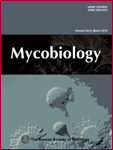
MYCOBIOLOGY
Advancing Knowledge in Mycology and BeyondMYCOBIOLOGY is an esteemed open-access journal published by Taylor & Francis Ltd, specializing in the fields of Infectious Diseases, Microbiology, and Plant Science. Since its inception, the journal has provided a platform for innovative research, showcasing a diverse range of studies that delve into the complexities of mycology and its vast implications on health, agriculture, and the environment. With a commendable impact factor and a Q2 ranking in Plant Science as of 2023, MYCOBIOLOGY facilitates the dissemination of vital findings to a global audience of researchers, professionals, and students. In addition to its commitment to high-quality content, MYCOBIOLOGY has embraced open access since 2018, ensuring that the latest advancements in mycological research are readily available to the academic community and the public. By bridging gaps in knowledge and fostering collaboration across disciplines, MYCOBIOLOGY plays a crucial role in advancing our understanding of fungal biology and its myriad applications.
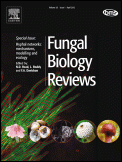
Fungal Biology Reviews
Exploring the Depths of Fungal ScienceFungal Biology Reviews is a premier academic journal published by Elsevier Science Ltd, focusing on the rapidly evolving field of fungal biology. With an ISSN of 1749-4613 and an E-ISSN of 1878-0253, this journal has established itself as a leading resource for researchers, academics, and professionals dedicated to advancing our understanding of fungi and their ecological, agricultural, and medical implications. As a testament to its impact and quality, Fungal Biology Reviews holds a distinguished Q1 classification in both Microbiology and Plant Science categories for 2023, with a notable rank of 26 out of 182 in the Microbiology category. The journal uniquely blends comprehensive reviews that synthesize current research findings with forward-looking perspectives that pave the way for future studies, making it indispensable for anyone involved in fungal research. Although it operates under a traditional access model, its commitment to fostering impactful scholarship ensures that it remains relevant and widely cited within the academic community. Spanning from its inception in 2007 through to its projected conclusion in 2024, Fungal Biology Reviews continues to shape the framework for future discoveries in fungal biology.